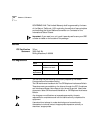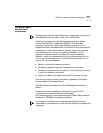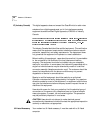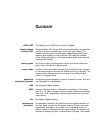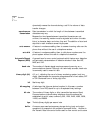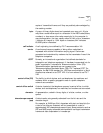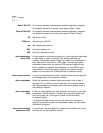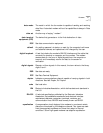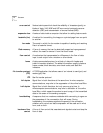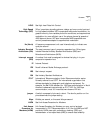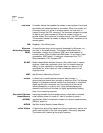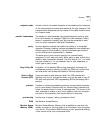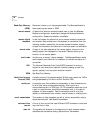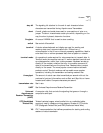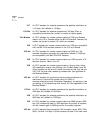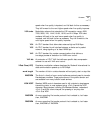
6
G
LOSSARY
error control
Various techniques which check the reliability of characters (parity) or
blocks of data. V.42, MNP and HST error control protocols use error
detection (CRC) and retransmission of errored frames (ARQ).
expansion bus
A series of slots inside a computer that allow for adding feature cards.
facsimile (fax)
A method for transmitting the image on a printed page from one point
to another.
fax mode
The mode in which the fax modem is capable of sending and receiving
files in a facsimile format.
Flash memory
A form of memory that can be electrically erased and reprogrammed
without the need to remove it from the circuit board.
flow control
A mechanism that compensates for differences in the flow of data
input to and output from a modem or other device.
frame
A data communications term for a block of data with header and
trailer information attached. The added information usually includes a
frame number, block size data, error-check codes, and Start/End
indicators.
file transfer protocol
(FTP)
A TCP/IP application that allows users of an internet to send (put) and
receive (get) files.
FTP
See file transfer protocol.
full duplex
Signal flow in both directions at the same time. In micro-computer
communications, may refer to the suppression of the online Local Echo.
half duplex
Signal flow in both directions, but only one way at a time. In
microcomputer communications, may refer to activation of the online
Local Echo, which causes the modem to send a copy of the transmitted
data to the screen of the sending computer.
handshaking
A sequence that two modems undertake while connecting to agree on
the parameters of the conversation that will ensue. During
handshaking, the modems negotiate the speed of the connection,
whether error control and data compression will be used and in what
form, and so forth.
hardware flow
control
A form of flow control that uses electronic signals to start and stop the
flow of data.



